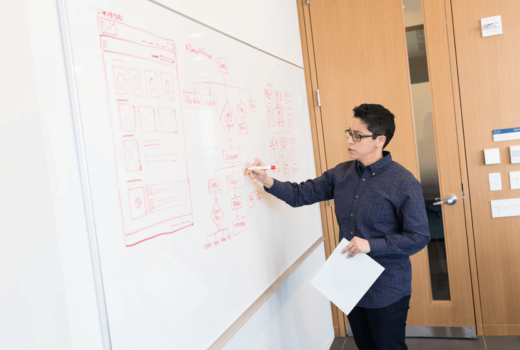Academics are not a vital profession
For another university approach to the COVID-19 crisis

[Voor Nederlands, klik hier]
There is no democracy without a vibrant intellectual climate, and universities are an important constitutive element of such a climate. Acutely, however, most of what academics in universities do can be missed, or at the very least postponed. At this point in the COVID-19 crisis, we should admit this, rather than claim special status in order to stick to the bureaucratic formats that have become the prevailing ways in which academic teaching is performed. It may come as a shock to academics, well-versed as we are in accumulating signs of status, but nurses, doctors, firemen, (hospital) janitors, primary school teachers, shop keepers, and electricity mechanics are much more vital at this moment than most academics. And this should have consequences for the ways universities respond to the current situation.
A vital profession?
When Dutch academics began asking for a ‘vital profession’ status in this pandemic, this initially struck us as a joke. The Dutch government had decided to close all schools, but remain open for parents with a ‘vital profession’ and no alternative childcare. ‘Vital professions’ include educational staff, but mostly as a way to support health care professionals, meaning teachers in primary schools. And beyond that, ‘vital professions’ include teachers with responsibility for secondary schooling exams. It soon turned out that, indeed, academics and universities were not joking but were actively lobbying to be considered ‘vital’, so that they too could claim continued access to childcare and schools. The lobby was successful, apparently, because on March 17, the VSNU sent the following press release:
“University staff fall under the ‘crucial professions’ when they are needed to organise (distance) education, as the VSNU is assured by the Ministry of Education, Culture and Science. According to the VSNU, this definition applies in practice in any case, but not exhaustively, to:
- Teachers
- ICT personnel required to maintain the ICT infrastructure and distance learning support programmes.
For further information we refer to the website of the central government.”
Subsequently, emails were distributed with messages such as this: ‘The ministry has clarified that university teachers belong to the vital occupations in the Netherlands. This means that if you have no one else at home who can take care of your children, you have a right to send them to daycare or school.’
As of yet, however, this ‘vital profession’ status is not made explicit on the official government website the VSNU refers to, although the Ministry of Education sent a letter to Parliament on March 19th confirming this ‘vital profession’ status. The list on the central government’s website, however, still only mentions ‘school teachers’ – a label university boards appear, all of a sudden, to be entirely comfortable with.
” “It may come as a shock to academics but nurses, doctors, firemen, (hospital) janitors, primary school teachers, shop keepers, and electricity mechanics are much more vital at this moment.””
These emails were surely meant to support staff that was struggling to combine work and care at home. Teaching staff in particular has indeed been put in a highly stressful and overwhelming situation, trying to ‘move’ teaching to online spaces, navigate anxieties about the pandemic and worries about loved ones, often while juggling homeschooling and childcare. It makes sense to provide support. Yet, the ‘vital professions’ claim makes clear that universities as employers have difficulty organizing solidarity.
Yes, some courses run through this semester and certainly, students should be enabled to graduate this academic year (that is, in absence of compensation enabling an extra year of study). But not all staff is involved in these tasks. Instead of effectively redistributing work and supporting staff that needs the support, the universities opted for a general ‘vital profession’ claim, effectively overburdening the already quite precarious health care system and schools in the Netherlands while exposing more people than necessary to infection. In the process, choices that are highly personal and ethical – do I take my child to daycare in the midst of a pandemic? – are decided by decree.
The delirium of ‘impact’
For some time now, Dutch universities are in a delirium over their ‘impact to society’. Being a ‘vital profession’ is part of that delirium. And it takes our mind off of what should now be done. Many students are not coping with the situation in such a way that it allows for the ‘business as usual’ model currently adopted. Especially international students are struggling. They are anxious about the virus itself and are far away from family, or they have moved back home and are therefore far away from the university. Students do not always have the support network in place to help them through this crisis and they often live in very small rooms. With hospitality and other businesses locked down, many also have to survive without the additional income they earn in part time jobs. The students need support and universities’ staff is offering this, often by digital means and from home. But many students, and in particular international students, we find, need more to alleviate mental stress and financial uncertainty about the future.
The first thing not to do, is to act as if we’re in ‘business as usual’. What we see happening is massive resources being deployed to keep students to deadlines rather than apply leniency, to not change teaching objectives (bureaucratically expressed in ‘learning goals’), to move all face-to-face teaching to online, digitally mediated teaching, through platforms controlled by the tech industry. This is madness. We are experiencing a crisis unprecedented in the history of modern higher education, which is profoundly changing the nature of higher education while putting everybody, students and staff, under intense pressure. In the face of a transformation of such magnitude, ‘business as usual’ cannot be the preferred course of action. There are two main reasons for this.
We cannot teach, so don’t pressure students to learn
The first is that teaching cannot properly be done. Only when education and pedagogy is expressed in bureaucratic ‘learning goals’ does it make sense to provide students with recorded lectures and consider it equivalent to what the meeting of students and teachers can and should be. Digital alternatives are, of course, provided with the best intentions, and considered as substitutes for lack of better options. But the very idea that they are substitutes is revealing with respect to how our society has to come understand what education is. What we have to resist is the idea that we are now doing ‘online teaching’.
“”Students are anxious about the virus itself, about being far away from family, or moved back home and therefore far away from the university.””
What we are doing, rather, is trying to make it to the end of the semester without harming the interests of our students. But in the current crisis, the flight to the digital is a form of denial rather than a way of coping with the crisis. This is the hard pill to swallow: teaching, challenging each other’s minds, studying and discovering together, is not possible at the moment. Therefore, in order to ensure that students do not incur delays, why not enact leniency, and adapt learning goals given the circumstances under which learning must take place? Why stick to bureaucratically engrained ‘learning goals’? Alternative options should be considered, such as a pass or fail grading option, or adapting exam requirements.
The second is that the ‘business as usual’ approach takes an exorbitant toll on supporting staff and outsourced personnel and heightens inequalities between tenured and temporary staff, and therefore signifies a lack of solidarity of academics with support staff, catering services, cleaning staff, as well as with primary school teachers and day care professionals. When we received the first emails requesting us to work from home and ‘move teaching online’, it became apparent which workers were asked to continue being on site: maintenance staff. Some of those e-mails assured staff who needed to come in for emergency meetings that ‘coffee machines will continue to be maintained, and can be used.’ So, workers were, and currently are, maintaining coffee machines and cleaning offices, after academics were already working home and before the buildings began to close (but note that many buildings remain open).
“”The first thing not to do, is to act as if we’re in ‘business as usual’.””
This put maintenance staff, generally badly paid and often non-white, at risk of being infected with COVID-19. The vitality of academics, thus depends on the vulnerability of others to a potentially lethal disease. And after the schools closed on Monday March 16th, it also put them in the situation of needing to make arrangements for childcare in order to show up for their job, just because we presumably cannot endure without our coffee. It is crucial that in the time to come, we include outsourced maintenance staff in our considerations of who is the university and who is actually ‘vital’. This crisis has made visible, yet again, that, to a large extent, vital work is indeed social reproductive work – the work that makes so-called productive work possible in the first place. We should make sure that, like academic staff, maintenance staff should continue to be paid throughout this crisis, and that no one loses their job in this crisis.
What we demand from Dutch universities:
1) Barring medical researchers and staff who are immediately involved in managing the COVID-19 crisis, the claim to a ‘vital profession’ should be rescinded;
2) All efforts should be aimed at providing relief for students, and this includes leniency, adjusting deadlines, extra retakes, all in such a way as to make sure students can both move on with their studies or graduate, and incur the least financial burdens;
3) Both the safety and the continuation of pay for support and maintenance staff should be secured, regardless of whether their work has been outsourced;
4) Temporary staff in particular requires extra support; leniency should be applied in tenure tracks, and PhD trajectories should be extended.
5) Pressure should be put on the central government to provide financial support for temporary staff, but in particular for students. Government has announced a huge package of financial relief measures for businesses. Why not for students? The forgiving of student debt and the extension of studies without tuition are two obvious options beyond postponing debt payments and, effectively, extending student debt, as announced by the Ministry’s letter to Parliament of March 19.
Earlier this, week, hundreds of Cambridge students asked their university to let them retake this year. These are not outrageous demands; they are demands that appreciate the size of what hit us, and of what is likely to come. It is time to start operating in radically different registers, that face the magnitude of what is happening to our educational institutions in and beyond this crisis. Rather than a digitized ‘business as usual’, this is what is demanded of the kind of educational leadership now required.
Update: The authors of this article have started an online petition.
Willem Schinkel, Erasmus University Rotterdam
Marguerite van den Berg, University of Amsterdam
Sarah Bracke, University of Amsterdam
Irene van Oorschot, Erasmus University Rotterdam
Rogier van Reekum, Erasmus University Rotterdam
Jess Bier, Erasmus University Rotterdam
Meest Gelezen
Vrouwen houden universiteit draaiende, maar krijgen daarvoor geen waardering
Hbo-docent wil wel rolmodel zijn, maar niet eigen moreel kompas opdringen
Wederom intimidatie van journalisten door universiteit, nu in Delft
‘Waarom het nu niet lukt om medezeggenschap in hbo te versterken’
‘Sluijsmans et al. slaan de plank volledig mis’



